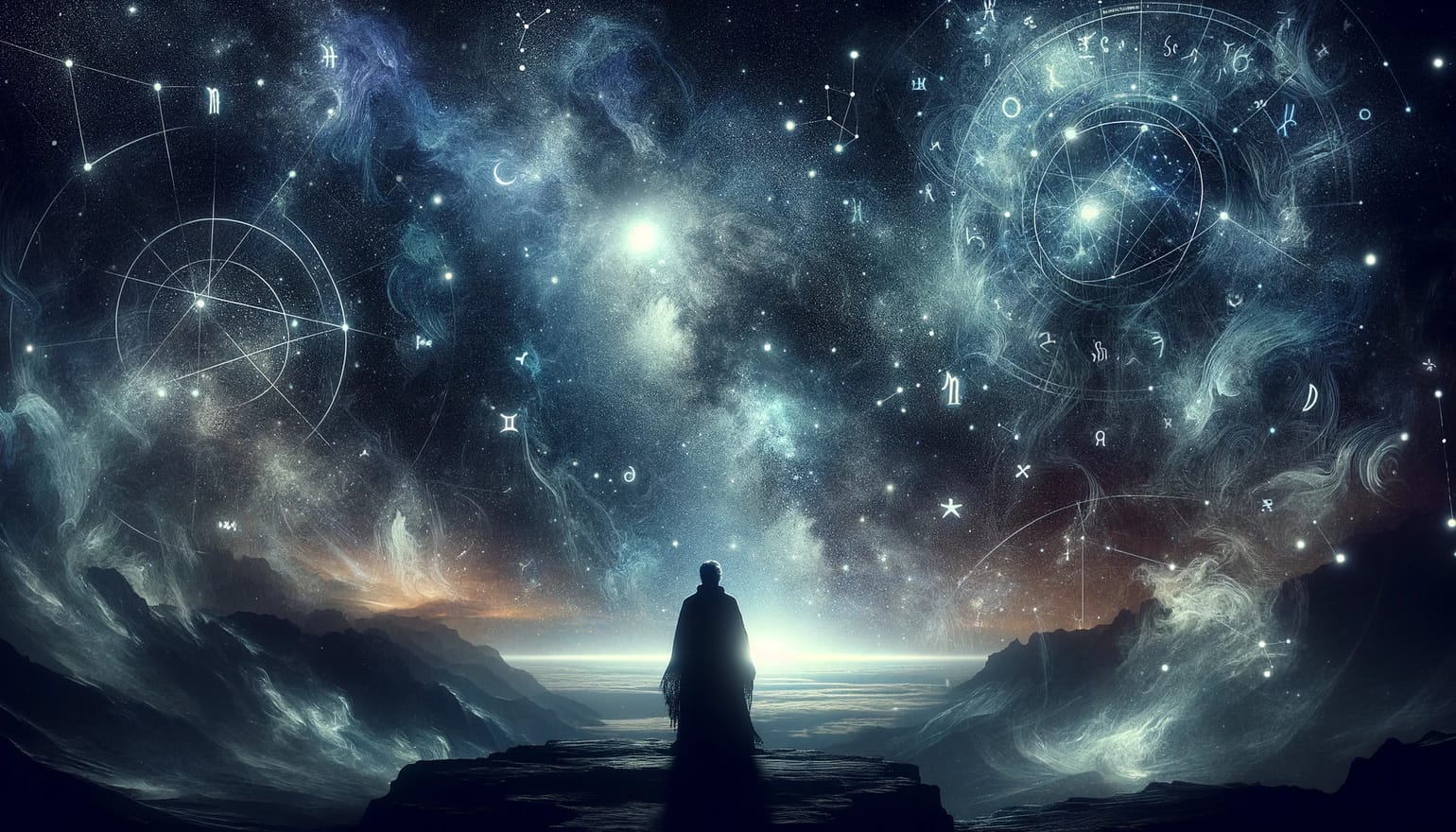Astronomy vs Astrology, Astrophysics, and Cosmology: Basic Concepts Explained
Astronomy, astrology, astrophysics, and cosmology often get mixed up, as not everyone knows the specific differences between them. On May 18, we celebrate International Astronomy Day, and it’s the best day to get to grips with these concepts and see what they have to do with each other.
Contents
- What is astronomy?
- What is cosmology?
- What is astrophysics?
- What is astrology?
- What is the difference between astronomy and astrology?
- Astronomy vs astrology: bottom line
What is astronomy?
Astronomy is the scientific study of objects and phenomena beyond the Earth’s atmosphere, including the Sun, the Moon, stars and planets, galaxies and nebulae, and cosmic events. Since ancient times, people have been looking up at the night sky, wondering why celestial bodies moved the way they did, so astronomy could be called one of the oldest of the natural sciences.

What do astronomers do?
Astronomers typically divide into observational and theoretical. Observational astronomers conduct direct observations of celestial objects and analyze gathered data, while theoretical astronomers develop and explore models of phenomena that can’t be directly observed.
There are also amateur astronomers who observe celestial bodies and phenomena just for fun. Some of them prefer observing particular types of objects (e.g., planets or deep-sky objects) or events (e.g., meteor showers); some also enjoy astrophotography. To start, you only need your eyes. Some use free stargazing apps as a sky map and get binoculars to have a better view of fainter objects. Yet, some amateurs own expensive science-grade telescopes and other advanced tools, allowing them to make discoveries and contribute to professional astronomical research. Overall, astronomers play a crucial role in expanding our knowledge of the cosmos and helping us better understand our place in the universe.

What is cosmology?
Cosmology is a branch of astronomy that studies the origin, evolution, and eventual fate of the universe. Cosmologists seek to answer fundamental questions about the nature of space, time, and the universe's structure. Cosmology also deals with the origin of the chemical elements, the Big Bang theory, string theory, and the multiverse concept.
What is astrophysics?
Astrophysics is a branch of astronomy that applies the principles of physics to understand the behavior and properties of celestial objects. Astrophysicists seek to uncover the underlying physical processes at work in the universe. Black holes, supernovae, dark matter, and dark energy are all subjects of astrophysics. It also intersects with cosmology, as it studies the universe's origin and the formation and evolution of stars, planets, and galaxies.

As you can see, astrophysics and cosmology are related to astronomy. Now, let’s get down to astrology and see if all these areas have anything in common.
What is astrology?
Astrology is a belief system that suggests a relationship between the movements of celestial bodies and events or personalities on the Earth. It is entwined with pop culture: even if you’re not into astrology, you probably know your zodiac sign. Many people put it on their dating profiles, and some even mention it on their CVs. It is believed that the zodiac sign affects a person's temperament and the way they interact with others.
The zodiac signs may seem to connect astronomy and astrology, as each zodiac sign has a corresponding zodiac constellation (Aries, Taurus, Gemini, etc.). These concepts hardly have anything in common other than the word “zodiac” in the name. In the dedicated article, we elaborate on which constellations are considered zodiacal, how many there are in total (12, 13, or 25), and how they differ from the zodiac signs. Be sure to test your knowledge of the zodiac constellations with our quiz!

What do astrologers do?
Astrologers create birth charts, also known as natal charts, which map the positions of celestial bodies at the time of a person's birth. Based on these charts, astrologers make readings that may include insights into personality traits, relationships, career paths, and life events. Some astrologers also provide forecasts about the future. The forecasts sometimes come true; also, the predictions of several different astrologers may contradict each other.
What is the difference between astronomy and astrology?
- Focus: Astronomy focuses on understanding the physical properties, movements, and interactions of celestial objects, as well as their origin and evolution. Astrology focuses on how the position of celestial bodies affects a person's life.
- Field of use: Astronomy has practical applications in navigation, satellite communication, space exploration, and understanding the universe. Astrology is mainly used for personal guidance and self-reflection.
- Predictions: Astronomy predicts celestial events, such as eclipses or meteor showers, based on scientific laws and observation data. Astrology makes predictions about individual lives or world events based on the positions of celestial bodies.
- Approve from the scientific community: Astronomy is a science taught in universities and research institutions. Astrology is considered a pseudoscience.
Fun fact: the celebrations dedicated to astronomy and astrology are also held on different days. The Astronomy Day is usually scheduled on a Saturday between mid-April and mid-May (for a spring Astronomy Day) or mid-September and mid-October (for an autumn Astronomy Day) to be close to the first quarter Moon. The Astrology Day is celebrated on the first full day of the astrological sign of Aries. This happens between March 19 and 22, but most often on March 20 or 21.
Astronomy vs astrology: bottom line
Astronomy studies objects and phenomena beyond the Earth’s atmosphere: planets, stars, galaxies, cosmic events, etc. Cosmology and astrophysics are the interconnected branches of astronomy. Astrology is a system of beliefs that implies a connection between the position of the stars and planets and a human’s fate. Astronomy, astrophysics, and cosmology are sciences, while astrology is considered a pseudoscience. Hope you won’t confuse all these “astro-”s and “-logy”s anymore!
